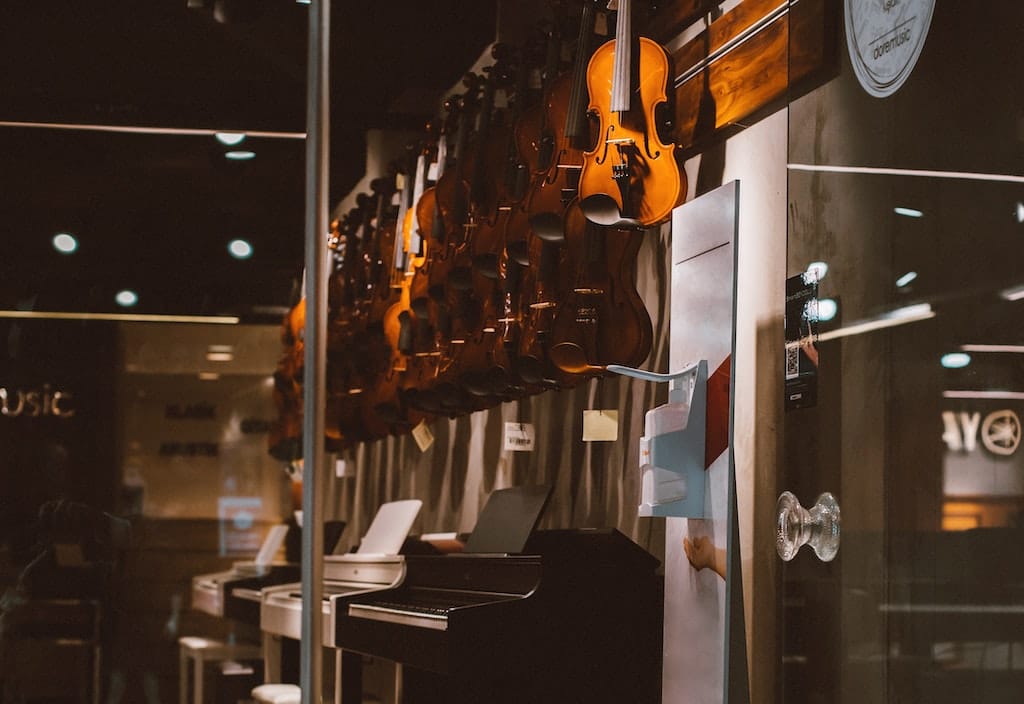Transforming Traditions: Legacy Music Stores’ Journey into Digital Retail

The music retail landscape has undergone a significant transformation with the rise of digital stores, revolutionizing the way musicians shop for instruments. Legacy music stores, with their rich history and physical storefronts, recognize the importance of adapting to this digital shift to remain competitive and meet the changing demands of customers. Traditional music stores have long been cherished by musicians as spaces for exploration, expert advice, and community engagement. However, the convenience, expanded product offerings, and competitive pricing of digital music stores have propelled their popularity. To ensure their relevance, legacy stores are establishing online presences, embracing the advantages of digital platforms, and attracting new customers in the digital realm. Adapting to the digital era is crucial for the survival and growth of these venerable establishments in today’s rapidly evolving marketplace.
The advantages of digital music stores
Digital music stores provide musicians with unparalleled accessibility and convenience. Customers can effortlessly browse and purchase instruments at any time, from anywhere, transcending the limitations of physical store hours and geographical boundaries. With unlimited virtual shelf space, these stores offer an expansive range of instruments, including rare and specialized models that may be hard to find locally. Moreover, customer reviews and ratings enable informed decision-making, granting musicians valuable insights into instrument quality and performance. The rising popularity of digital music stores has prompted legacy stores to embrace this shift, catering to the evolving demands of their customers.
Legacy music stores embracing the digital shift
Legacy music stores are embracing the digital era by establishing user-friendly online platforms and websites. These digital storefronts showcase inventory, provide product information, and offer seamless browsing and purchasing experiences. To expand their reach, many legacy stores partner with established e-commerce platforms, leveraging existing infrastructure for secure transactions and efficient order fulfilment. Integration of reliable payment gateways ensures smooth and secure online payments, fostering trust with customers. Additionally, legacy stores prioritize strong customer support through online channels, such as live chat and email, offering guidance and personalized recommendations. These digital adaptations enable legacy music stores to navigate the digital shift and serve both existing and new customers in the evolving landscape of online music retail.
Creating an immersive online shopping experience
Legacy music stores prioritize the online shopping experience by providing high-quality product images and detailed descriptions, recreating the in-store browsing experience. They incorporate virtual instrument demonstrations and audio samples, allowing customers to assess instrument sound and playability. Interactive features enable instrument customization, empowering musicians to personalize their choices. Integration of customer reviews and testimonials builds trust and offers social proof. By combining these elements, legacy music stores create an immersive online environment that replicates the tactile and auditory aspects of in-person shopping, enabling musicians to make confident instrument selections online.
Ensuring instrument authenticity and quality
Legacy music stores prioritize authenticity and quality by collaborating with trusted manufacturers and suppliers. They implement stringent quality control measures, thoroughly inspecting each instrument before listing it for sale online. Detailed specifications and certifications provide transparent information to customers, instilling confidence in the authenticity and craftsmanship of the instruments. Favourable return policies and warranties are offered to ensure customer satisfaction. Through these efforts, legacy music stores ensure that customers receive genuine, high-quality instruments when shopping online, fostering lasting relationships with musicians.
Building online communities and customer engagement
Legacy music stores understand the value of fostering a sense of community among musicians. They create online forums and discussion boards where musicians can connect, share experiences, and seek advice, replicating the camaraderie of physical stores. Live streaming events and virtual workshops offer educational and entertaining content that enhances the shopping experience. Exclusive promotions and loyalty programs reward customer loyalty and cultivate a dedicated customer base. Active engagement through social media platforms allows for direct interaction, feedback, and community building. By focusing on community, engagement, and loyalty, legacy music stores establish vibrant online environments that go beyond transactions, nurturing lasting relationships with musicians.
Bridging the gap between online and physical experiences
Legacy music stores excel at bridging the gap between online and physical experiences. Customers can opt for in-store pickup, collecting their online purchases conveniently from the physical store. Some stores even offer instrument trials in-person, providing a personalized touch. Interactive digital showrooms and virtual tours bring the store atmosphere to life, while seamless inventory management ensures accurate product availability. Personalized customer service extends across all channels, with dedicated representatives providing guidance and support. By integrating online and offline experiences, legacy music stores create a cohesive and personalized shopping environment, strengthening their relationship with musicians.
Supporting after-sales services and instrument maintenance
Legacy music stores go the extra mile in supporting customers beyond the point of purchase. They provide online resources and guides for instrument repair and maintenance, empowering musicians to care for their instruments and troubleshoot common issues. Collaborations with authorized service centres ensure access to professional repairs. Instrument care guides offer step-by-step instructions for proper maintenance, promoting instrument longevity. Dedicated customer support channels provide prompt assistance for any inquiries or concerns. Through these comprehensive after-sales services, legacy music stores demonstrate their commitment to supporting musicians throughout their instrument’s lifespan, enhancing the overall musical experience.
Embracing innovation and future developments
Legacy music stores embrace innovation to enhance the online shopping experience. They explore virtual reality (VR) and augmented reality (AR) integration for immersive instrument trials and interactive overlays. AI-powered recommendation systems analyze customer preferences for personalized instrument suggestions. Personalized online learning platforms provide educational resources and tutorials. Robust tracking and delivery updates ensure a seamless customer experience. By leveraging these technologies, legacy music stores stay at the forefront of online music retail, offering unique and engaging experiences to musicians.
Conclusion
In this ever-evolving digital era, legacy music stores are moving towards digital stores to offer a comprehensive and immersive online shopping experience for musicians. By embracing the advantages of digital platforms, legacy music stores are expanding their reach, providing a wider range of products, and creating a seamless integration between online and physical experiences. They prioritize instrument authenticity, quality, and customer satisfaction by collaborating with trusted manufacturers, implementing strict quality control measures, and offering after-sales support and maintenance services.
Legacy music stores are building online communities, fostering customer engagement, and bridging the gap between the online and physical realms. They are investing in innovation, exploring emerging technologies, and staying ahead of future developments to provide unique and personalized experiences for musicians. Through these efforts, legacy music stores are ensuring their continued relevance and success in the digital age while maintaining their legacy of serving musicians with passion, expertise, and a commitment to the art of music.





